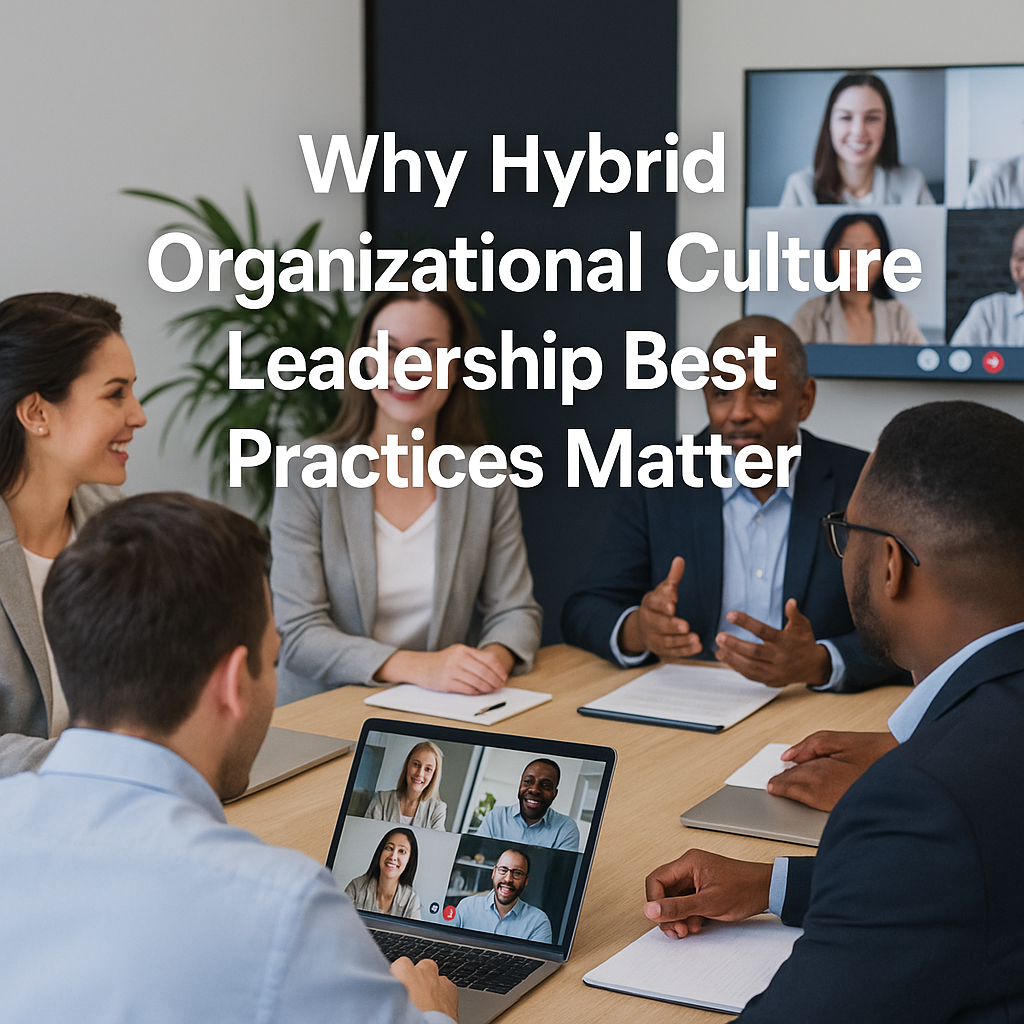My Cart
Your Cart is Currently Empty
GET $10 OFF YOUR FIRST ORDER USING CODE FIRST10 AT CHECKOUT

In 2025, organizations across every sector are redefining how people work together. Remote-first? Office-centric? Hybrid? The reality is that no single model works for everyone—but hybrid organizational culture leadership best practices are emerging as a clear way forward.
A hybrid model allows teams to combine the strengths of in-person collaboration with the flexibility of digital work. But success depends on more than technology—it requires cultivating culture, refining communication, and creating structures that align with mission and values. For faith-driven leaders, this moment offers both challenge and opportunity: to ensure that hybrid work doesn’t dilute relationships, but instead strengthens unity and purpose.
Why Hybrid Organizational Culture Leadership Best Practices Matter
The Shift Is Permanent
The pandemic accelerated remote work, but hybrid is here to stay. According to a 2024 Gallup survey, 59% of employees prefer a hybrid model. Leaders must adapt intentionally.
Balancing Flexibility with Accountability
Hybrid work offers freedom, but without structure, teams risk fragmentation. Best practices ensure clarity while honoring individual needs.
Core Principles of Hybrid Organizational Culture Leadership Best Practices
Build Trust Through Transparency
Hybrid teams thrive when leaders clearly communicate goals, expectations, and values. Trust is built when accountability and flexibility work hand in hand.
Strengthen Communication Channels
Effective hybrid organizations use both digital platforms (Slack, Teams, Zoom) and in-person gatherings to keep people connected. Regular rhythms of updates reduce confusion.
Protect and Promote Culture
Faith-driven organizations, in particular, must be intentional about preserving values. Hybrid work should magnify—not erode—the spiritual and cultural DNA of a team.
Redesign Structures for Clarity
Hybrid leadership requires rethinking reporting lines, meeting cadences, and decision-making processes to avoid bottlenecks.
Best Practices for Faith-Driven Hybrid Leadership
Internal Links – LeadershipBooks.com Resources
Expert Quotes or Stats
“Hybrid leadership isn’t just about blending office and remote—it’s about building trust, culture, and mission that transcend physical spaces.” — Michael Stickler
Stat: McKinsey found that companies adopting structured hybrid models saw a 22% increase in employee engagement compared to fully remote or fully in-office peers.
FAQs – Hybrid Organizational Culture Leadership Best Practices
Q: What is the biggest challenge in hybrid leadership?
A: Maintaining culture and communication across physical and digital spaces.
Q: Can hybrid work models apply to churches and nonprofits?
A: Absolutely. Churches and ministries are increasingly using hybrid models for staff and congregational engagement.
Q: How can faith-driven leaders approach hybrid culture?
A: By integrating biblical principles of stewardship, honesty, and relational health into structures and practices.
Hybrid Leadership That Works
The hybrid organizational culture leadership best practices of 2025 aren’t about simply mixing office and remote—they’re about building resilient, value-driven organizations that thrive in both environments.
For Christian leaders, this is a Kingdom opportunity: to model a culture that reflects God’s truth while harnessing the best of modern tools. With trust, intentional communication, and clear structure, hybrid teams don’t just function—they flourish.
💡 Ready to strengthen your hybrid team with values-driven leadership? Discover faith-based resources and books for building organizational health at LeadershipBooks.com.

Michael Stickler is the publisher of Leadership Books and a straight-talking guide for authors, speakers, executives, and ministry leaders ready to grow their influence without compromising their convictions.
He’s also the author of Invisible to Viral, a practical guide to building a meaningful platform, one clear message at a time.
External Links – Supporting Insights
Forbes: Hybrid Work: The New Normal Redefining Productivity
Wall Street Journal: The Disconnect Between Remote Workers and Their Companies Is Getting Bigger
0 Comments
Leave a Reply